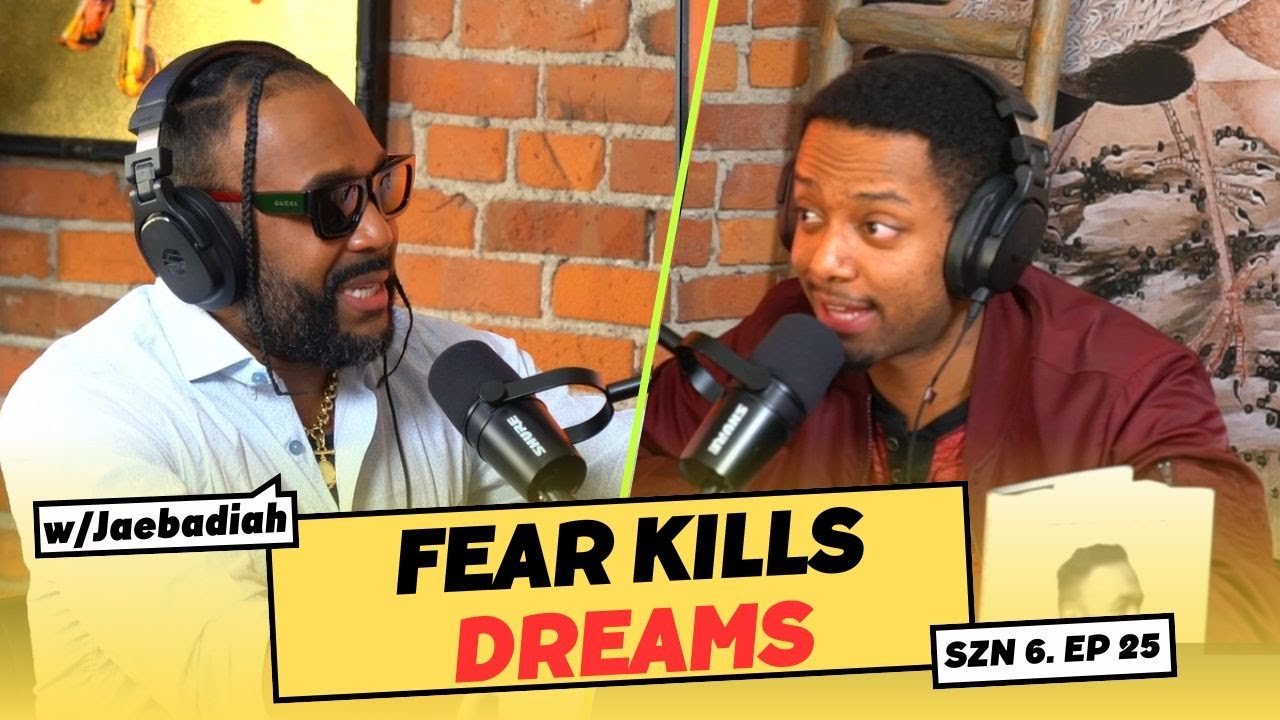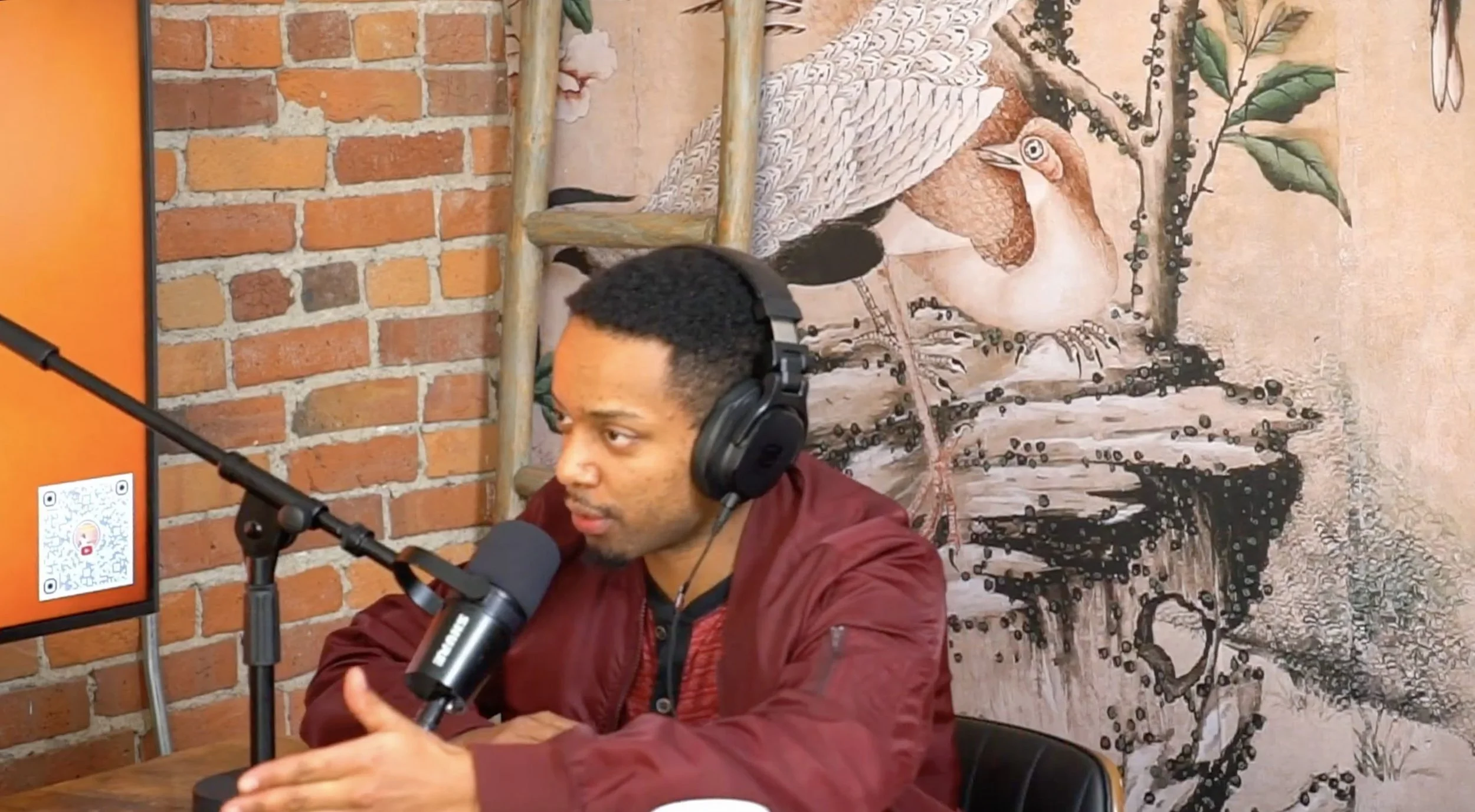THE MISSION IS BIGGER: Inside the Mind of Jaebadiah, Founder & CEO of GardnerGlobal
Recap of our episode of The Black Experience Podcast.
“The mind is its own place and in itself can make a heaven of hell or a hell of heaven.”
That line sits at the top of Jaebadiah’s Instagram page not as decoration, but as declaration. It frames everything about the man behind Gardner Global, the privately held development and investment company reshaping one of America’s most expensive and historically Black neighborhoods: Seattle’s Central District.
And if you heard this interview with The Black Experience Podcast, you felt it immediately this wasn’t the polished, media-trained version of a CEO. This was an unfiltered, authentic Jaebadiah. The one who remembers where he came from, knows where he stands, and refuses to apologize for where he’s going.
Because as he says bluntly:
“I’m not selling shoes, man. I’m buying land in one of the most expensive metropolises in the country.”
Not a house. Not a duplex. Land. Blocks. Millions in property right in the heart of a gentrified neighborhood where most people only talk about ‘buying back the block.’ He’s actually doing it.
FROM SOUTHGATE TO SEATTLE: A BICULTURAL BLUEPRINT FOR GRIT
To understand the force behind Gardner Global, you need to understand the man. Born to a Black father and Mexican mother, raised by Mexican grandparents in Southgate, Los Angeles, Jaebadiah grew up in a household where Spanish was spoken, tamales were holiday staples, and identity was never boxed into one lane.
“I’m more Mexican than anything,” he laughs.
Not as a punchline, just as truth.
That duality shaped him early: the discipline, the hustle, the cultural depth, and the ability to navigate spaces that weren’t designed for him. Spaces like corporate construction, law school, and eventually real estate development—an industry where Black and brown developers make up less than 1% nationwide.
THE ORIGIN OF A DEVELOPER
His entry point wasn’t glamorous. It was Turner Construction meaning hard hats, early mornings, concrete dust, and 13 story towers rising from hundred-million-dollar budgets.
It was there he realized the difference between building for someone and building as the one who owns the land, the vision, and the future.
“Contractors build. Developers call the shots.”
That realization became obsession.
That obsession became Gardner Global.
Sixteen and a half years later, he’s still here weathered, wiser, but unwavering in mission.
GENTRIFICATION: THE TRUTH NO ONE TELLS
People complain about gentrification after it happens. After the cranes are already in the sky. After the fences go up. After the neighborhood looks unfamiliar.
But by then?
Those decisions were made 10, sometimes 20–30 years earlier.
Yesler Terrace?
Rezoned in the mid-2000s.
Community input?
Rare and often absent not because people don’t care, but because people are trying to survive.
“We weren’t at the meetings. We weren’t in the rooms. No one’s coming to knock on your door and say, ‘Hey, in 30 years we’re redoing your whole neighborhood.’”
His message is clear:
If we want to stop being surprised by development, we must stop being reactive and start being informed.
THE MISSION: WEALTH + IMPACT + LEGACY
Ask him what drives him, and he won’t mystify it.
“First and foremost, I’m a businessman. We’ve got to get the bag. Without capital, there is no change.”
To Jaebadiah, money is a tool a vessel. What matters is its purpose.
And Gardner Global’s purpose is twofold:
1. Build real wealth through real estate.
Not hypothetical ownership. Not slogans. Actual land. Actual assets. Actual equity.
2. Create opportunity where opportunity historically didn’t exist.
From affordable housing in the Central District to commercial space for microbusinesses, to Black-owned partnerships at every stage of development—architects, contractors, attorneys, consultants, investors.
The Sarah Queen development, an eight-story, 117-unit building with 35% affordable housing is the manifestation of that mission. A tribute not just to his grandmother, but to the legacy of Black women entrepreneurs whose shoulders we stand on.
THE COST OF BEING FIRST
With impact comes backlash. With leadership comes criticism. With visibility comes hate.
And he’s experienced all of it.
“People root for you when you’re the underdog…
They stop when they think you’ve ‘made it.’
They get mad when you’re the one doing what they only talked about.”
But the difference is?
He doesn’t flinch.
“After you get beat up enough, you stop caring what people think.”
Call him bougie. Call him lucky. Call him whatever you need to feel better.
He’ll be in Mexico, or Greece, or on another site visit focused, unfazed, and still buying land.
THE HONEST TRUTH ABOUT SUCCESS
Behind the interviews and headlines, there’s this:
Three-to-five hours of sleep.
Emails before breakfast.
A mind that won’t shut off.
Payroll, lenders, acquisitions, investors on loop.
Nights awake strategizing instead of sleeping.
And yet:
“Different strokes for different folks…
But if you think I just intermittent-fasted my way into owning land in the Central District, you’re mistaken.”
This work takes sacrifice.
It takes years.
It takes skin thick enough to withstand failure, betrayal, stolen contracts, and people rooting against you.
Most of all, it takes authenticity.
THE MESSAGE TO THE NEXT GENERATION
When asked what he’d tell a young person trying to find their place, he didn’t hesitate:
“Go hard. And when you think you’re going hard, go harder.”
“Jump into your fears. Fear kills more dreams than anything.”
“Don’t give a damn about who doubts you.”
“Study the rules… so well that you can eventually make your own.”
Because the truth is simple:
No one is coming to save you.
But if you bet on yourself fully, unapologetically, and relentlessly your life becomes proof that it was always possible.
THE BOOK: Believe in Yourself
Two years of writing.
A roadmap of losses, not wins.
Reflection, honesty, grit.
He wrote it to remind himself how far he came.
But anyone reading it can feel the message:
You are capable.
You are worthy.
You can build your own block literally and metaphorically.
THE FUTURE OF GARDNER GLOBAL
With the Sarah Queen project breaking ground, Gardner Global isn’t slowing down.
This is chapter one of a much larger story:
More affordable housing.
More commercial ownership.
More Black and brown developers entering the field.
More land reclaimed by the people who were pushed out.
This is legacy.
This is business.
This is impact.
This is Gardner Global.
And as Jaebadiah made clear—
he’s just getting started.
Connect w/ The Black Experience Podcast.




